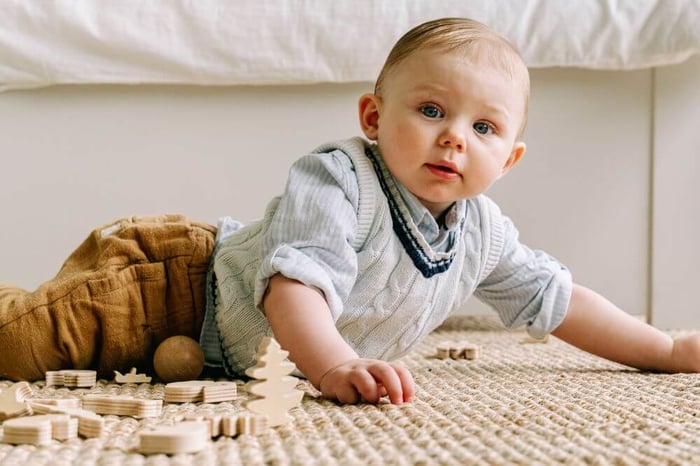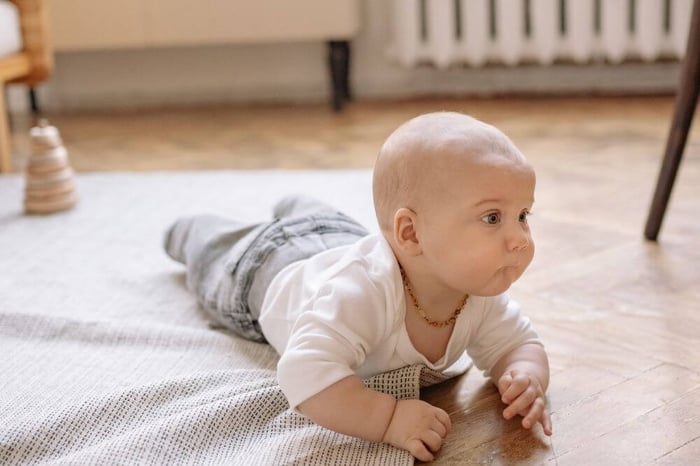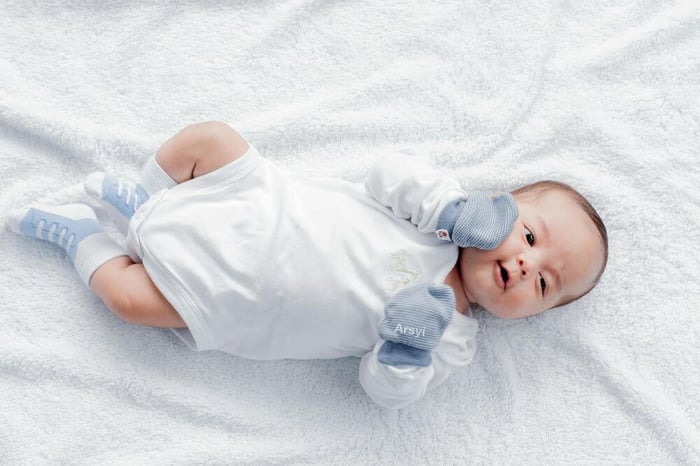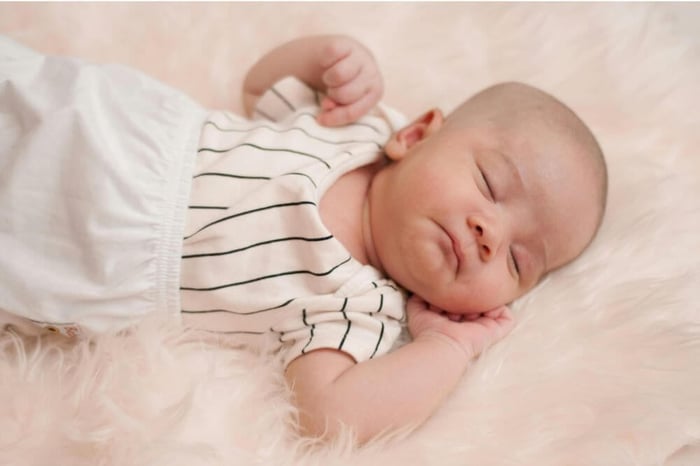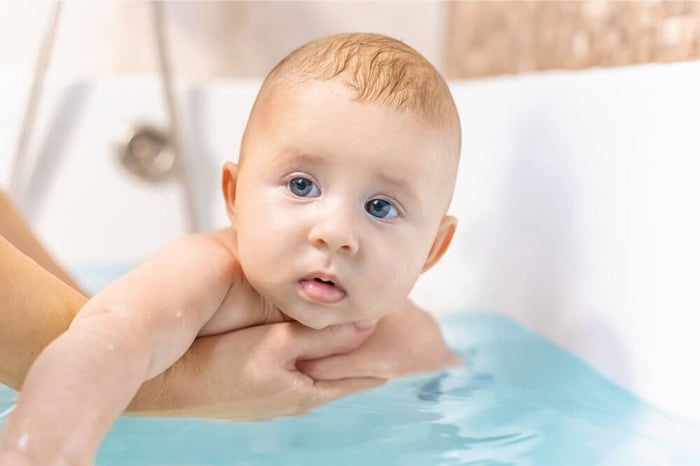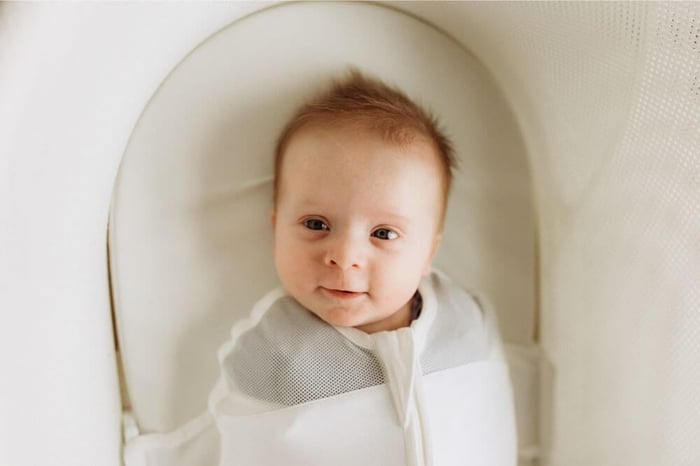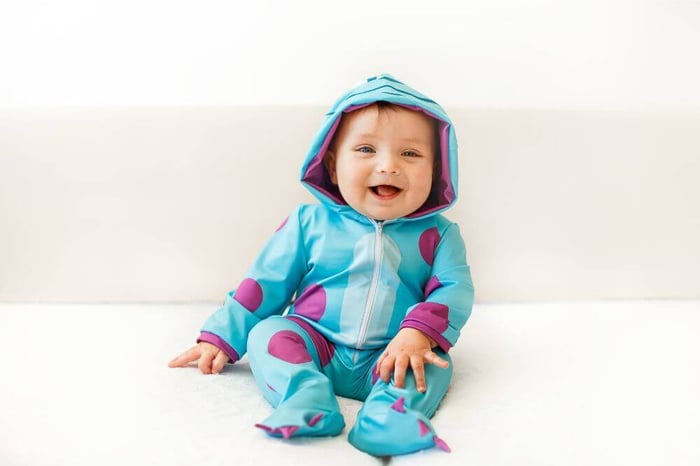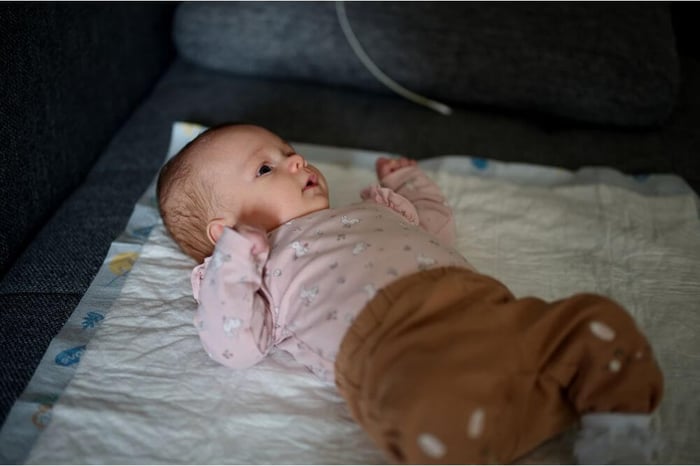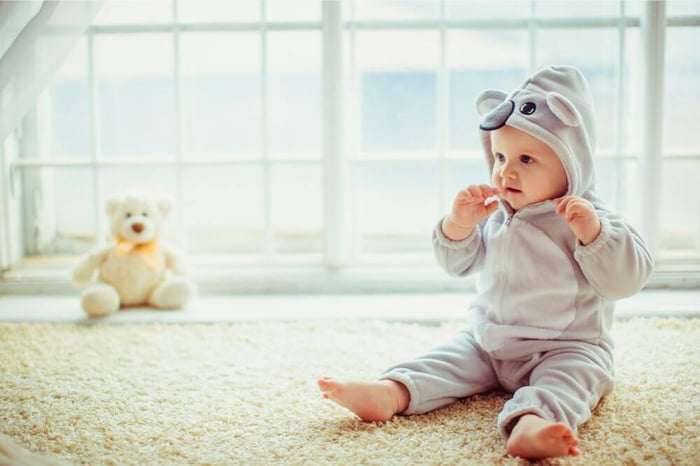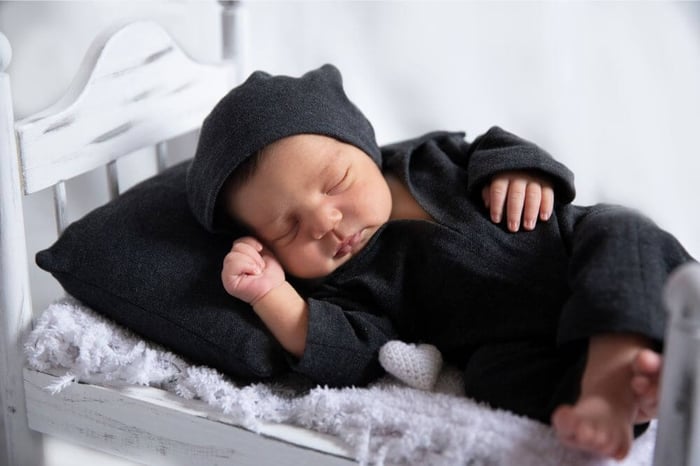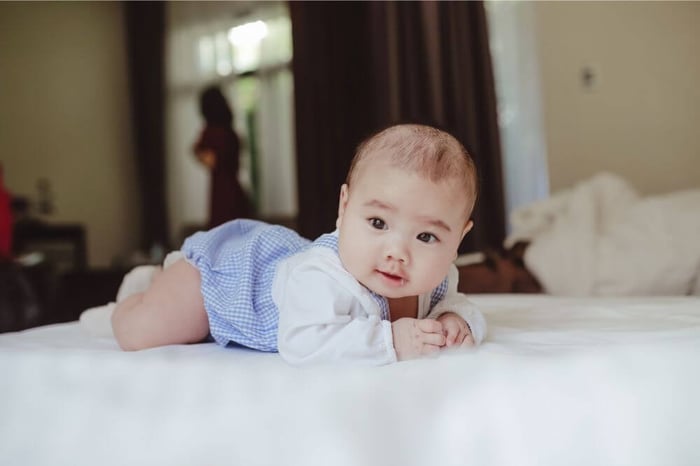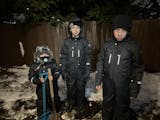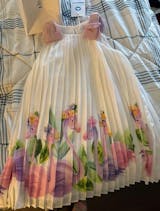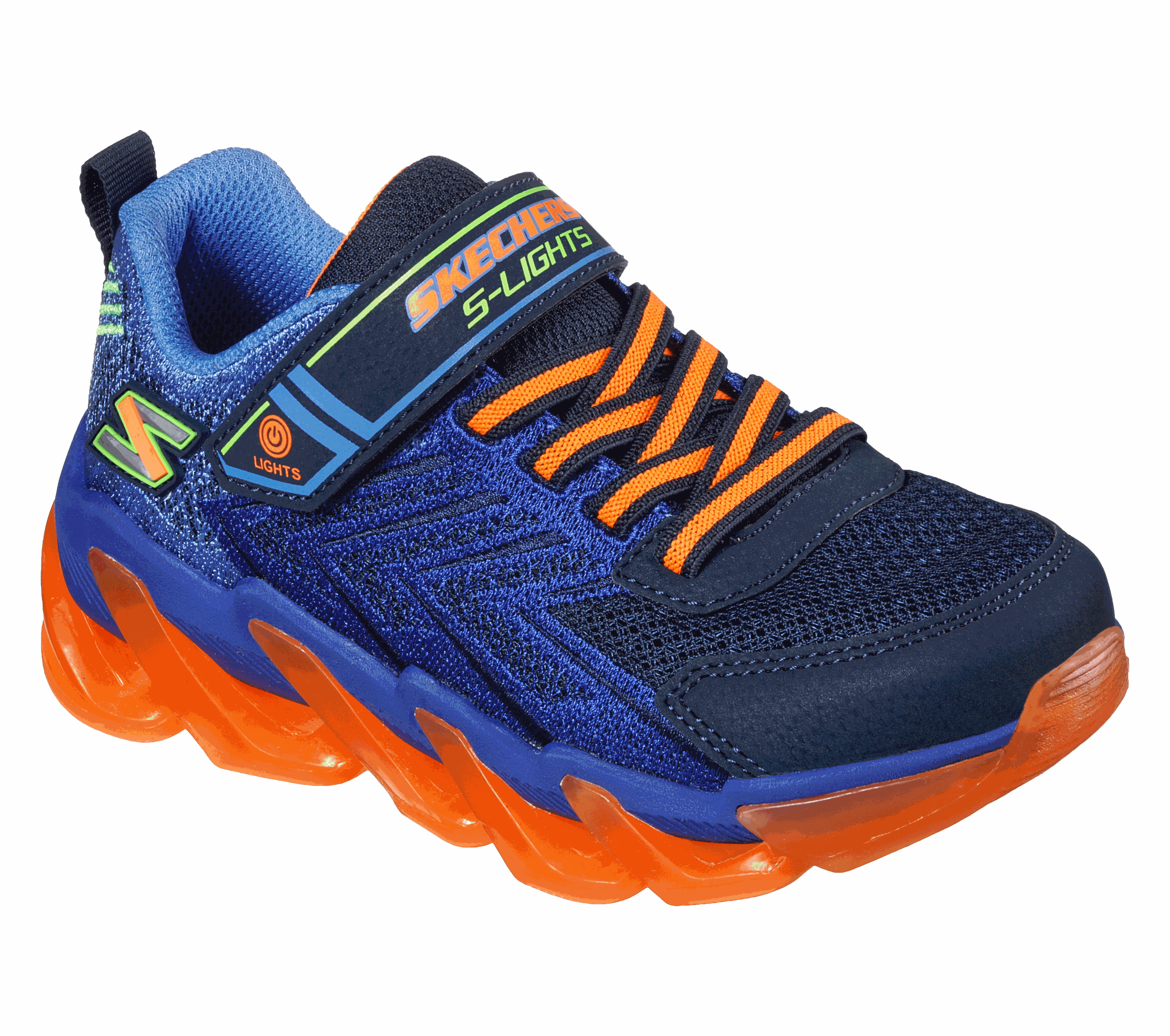What Is The Most Durable Baby Clothing Material
Ever had a onesie fall apart after just two washes? Baby clothes go through a lot. Spills, drool, crawling, and constant washing can wear them out faster than expected.
As a parent, you need clothes to keep up with your baby’s daily adventures. And most importantly, the fabric should stay soft and gentle on your baby’s skin.
But finding baby clothes that are durable and comfy can feel like a never-ending challenge.
You may wonder, "Is it even possible to get clothes that last without spending a fortune?”
Here’s the good news: it is!
You can find strong baby clothes by learning what to look for. Also, those clothes that can stay soft and keep your little one happy.
Let’s explore what is the most durable baby clothing material.
What Makes Baby Clothes Durable?
When it comes to baby clothes, durability is everything. However, the answer to “what is the most durable baby clothing material” varies.
Babies are messy, active, and grow quickly. Their clothes go through a lot—spills, stains, and endless washes. So, what makes some baby clothes last longer? Let’s find out!
1. Strong Fabrics
Durable baby clothes start with strong fabrics. But it’s not just about the material; the weave matters too. Clothes made with a tight weave are tougher and less likely to tear.
For example, cotton is great, but tightly woven cotton lasts even longer.
2. Comfort Matters
Durable clothes don’t have to be rough. Babies have delicate skin. They need clothes that are soft and cozy.
Materials like organic cotton and bamboo are perfect. They are gentle on the skin and also hold up well over time. Comfort and durability can go hand in hand.
3. Washability is Key
Baby clothes see the washer more than any other clothes. Between spit-ups, food stains, and accidents, they need frequent cleaning. The best baby clothes can handle all that washing without shrinking, fading, or losing shape. Look for fabrics labeled "machine washable" or "pre-shrunk" for better results.
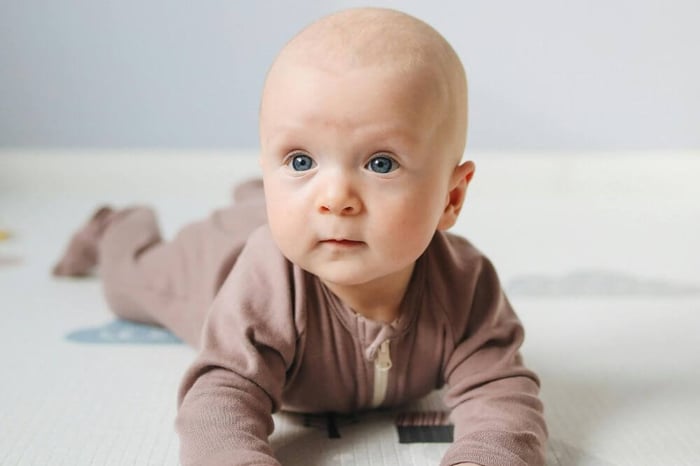
The Heavyweights: Top Durable Materials for Baby Clothes
When shopping for baby clothes, choosing the right material is super important. Babies need clothes that are
Soft
Comfortable
Strong enough to survive countless messes
Some materials do this job better than others. Stay focused because I’m going to answer the question of what the most durable baby clothing material is.
1. Organic Cotton
Organic cotton is like the superhero of baby clothes. It’s soft but also tough, like a perfect parent! This fabric feels gentle on a baby’s delicate skin. Also makes it a popular choice for parents.
Another great thing about organic cotton is its durability. Even after many washes, it stays soft and holds its shape. You don’t have to worry about it wearing out quickly.
Always check for GOTS-certified organic cotton - Global Organic Textile Standard. It ensures the fabric is truly organic and safe for your baby.
2. Bamboo Fabric
Bamboo fabric feels like a cloud but lasts like steel. It’s one of the softest materials out there. Moreover, it is perfect for keeping your baby comfortable. Here are some features of bamboo fabrics:
Moisture absorber
What makes the bamboo fabric even cooler is its natural moisture-wicking properties. It absorbs sweat and keeps your baby dry, especially during hot weather.
Antibacterial
Another superpower of bamboo fabric is its antibacterial trait. It naturally resists germs and odors. This makes it a great choice for active little ones who are always moving around and getting messy.
Eco-friendly
Bamboo fabric is also eco-friendly. Bamboo plants grow quickly and don’t need much water or pesticides. So, when you choose bamboo clothes, you’re helping the planet too!
3. Merino Wool
When you hear the word “wool,” you might think of itchy sweaters. But merino wool is completely different. It’s soft, breathable, and perfect for babies.
Merino wool is amazing because it can keep your baby warm in winter and cool in summer. This is thanks to its thermoregulating magic. It adjusts to your baby’s body temperature, so they’re always comfortable.
Another great thing about merino wool is how strong it is. It can handle a lot of wear and tear without getting damaged. Even with frequent washes, it stays soft and stretchy.
And don’t worry about the itchiness—merino wool is incredibly gentle on the skin. It’s also odor-resistant and naturally repels dirt. That means fewer stains and less washing for you!
4. Polyester Blends
Polyester is like the superhero of synthetic fibers. Polyester blends are great for active babies. They’re strong enough to handle crawling, climbing, and all kinds of adventures.
It is:
Tough
Wrinkle-free
Stain-resistant
When mixed with natural fabrics like cotton, it becomes even better.
Polyester blends are great for active babies. The fabric doesn’t tear easily, so you won’t have to replace clothes as often.
One of the best things about polyester is that it doesn’t absorb stains. If your baby spills food or milk, it’s much easier to clean.
Plus, it dries quickly, so you don’t have to wait long after washing.
While polyester isn’t as soft as bamboo or organic cotton, blending it with natural fibers helps balance comfort and durability. It’s a smart choice for parents who want clothes that last without too much fuss.
At this point, you pretty much get the answer of what is the most durable baby clothing material. If not, here is the comparison to make things easy for you.
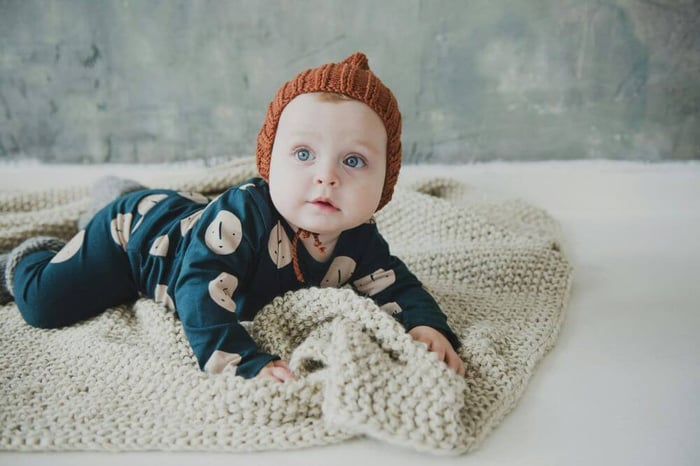
Which Fabric Wins the Durability Crown?
When it comes to baby clothes, durability is key. But which fabric takes the crown? Let’s have some fun and do a head-to-head comparison of the top contenders.
Organic Cotton vs. Bamboo
Organic cotton and bamboo are both eco-friendly champs. They’re natural, safe, and gentle on your baby’s skin. But which one lasts longer?
Features | Organic cotton | Bamboo |
Softness | Very soft | Ultra soft |
Durability | Strong , long lasting | Durable, slightly delicate |
Eco-friendliness | Chemical free farming | Low water use |
Skin safety | Hypoallergenic | Antibacterial |
Best for | Everyday wear | Hot weather |
Organic Cotton
Soft and strong.
Handles frequent washes without losing shape.
Hypoallergenic and great for sensitive skin.
Certified organic options (like GOTS-certified) ensure it’s safe for babies.
Bamboo
Feels like a cloud—super soft and breathable.
Naturally antibacterial, which means fewer odors.
Absorbs moisture, keeping babies dry and comfy.
Slightly more delicate than cotton but still holds up well.
Merino Wool vs. Polyester Blends
Merino wool and polyester blends are great for active babies. They’re tough, but in different ways.
Features | Merino wool | Polyesters blends |
Softness | Soft , stretchy | Semi soft |
Durability | Long lasting , delicate | Very tough |
Eco-friendliness | Biodegradable | Synthetic but not eco |
Skin safety | Odor- resistant | Depends on blends |
Best for | Cold wether | Messy play |
Merino Wool
Soft and stretchy, not itchy at all
Keeps babies warm in winter and cool in summer
Naturally odor-resistant
Dirt-repellent
Needs gentle care but lasts a long time
Polyester Blends
Super tough and wrinkle-free.
Stain-resistant and easy to wash.
Dries quickly after spills or washes.
Less breathable but great when mixed with cotton.
How to Spot Baby Clothes That Will Last
Buying baby clothes that last isn’t as hard as you think. Here is how you can get the versatile answer to what is the most durable baby clothing material.
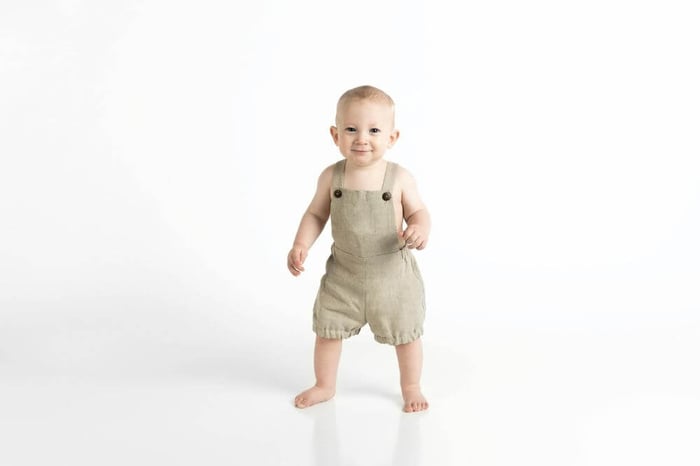
Check the Seams
Strong seams mean longer-lasting clothes. Look for double-stitched seams. They’re less likely to rip or come undone, even after lots of washing and wear. Give the seams a gentle tug to make sure they’re sturdy.
Look at Closures
Closures can make or break baby clothes. Snap buttons are better than zippers for durability. Zippers can break easily, especially when used often. Snaps hold up well and are easy to replace if needed.
Feel the Fabric
Durable clothes often feel thicker or stronger. Give the fabric a stretch to see if it bounces back. If it feels too fragile, it might not last.
Inspect the Details
Quality is in the little things. Check if the prints are sewn, not just glued. Look for reinforced knees or elbows in play clothes. Small details can mean big durability.
Conclusion
Here we end the discussion of what is the most durable baby clothing material. Durable baby clothes are a mix of strong and soft. They should handle messes, washes, and active little ones while keeping babies comfortable.
Merino wool is great for all seasons, while polyester blends are tough and ready for action.
To spot lasting clothes, check for double-stitched seams, snap closures, and certified fabrics. These small details make a big difference. Head to Jennikidz to get versatile clothing items for babies that are durable yet stylish.
FAQs
1. How do I know if baby clothes are durable?
Check the seams, fabric quality, and closures. Double-stitched seams last longer. Strong fabrics like organic cotton or bamboo hold up well. Snap buttons are better than zippers. Feel the fabric if it’s thick and stretchy. It’s more likely to last through washes and wear.
2. Which fabric is best for baby clothes?
It depends on your needs.O rganic cotton is soft and durable for daily wear. Bamboo is great for warm weather and sensitive skin. Merino wool works for all seasons. Polyester blends are tough and easy to clean. So it is considered perfect for playtime clothes.
3. How can I make baby clothes last longer?
Wash them gently in cold water. Use mild detergent to protect the fabric. Avoid overloading the washer. Line-dry whenever possible to prevent shrinkage. Choose high-quality clothes with strong seams and reinforced details to begin with.
Are expensive baby clothes more durable?
Not always. Price doesn’t guarantee quality. Look at the fabric type, seams, and closures instead of focusing on the price tag. Affordable options with certified fabrics or good construction can last just as long as expensive brands.

